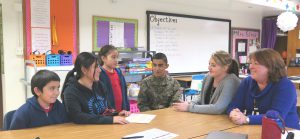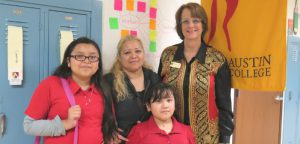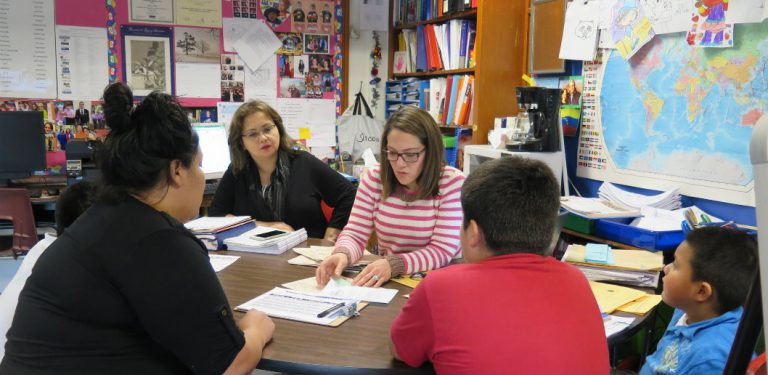 William Cabell Elementary School Principal JoAnne Hughes, her staff, and the school’s families have a lot riding on the implementation of personalized learning at the northwest Dallas school. Cabell is one of five schools approved to adopt a personalized learning instructional model next school year.
William Cabell Elementary School Principal JoAnne Hughes, her staff, and the school’s families have a lot riding on the implementation of personalized learning at the northwest Dallas school. Cabell is one of five schools approved to adopt a personalized learning instructional model next school year.
Cabell serves 600 students in grades PK-5, sixty-six percent of whom are limited English proficient and 95 percent of whom receive free or reduced price lunch. Based on last spring’s test scores, TEA rated the school as having met standards, but longtime educator Hughes is the first to admit there’s lots of room for academic improvement. She and her team have high hopes the new model will help them accomplish that improvement.
Teachers and parents appear to like all the elements of personalized learning, and believe it will give Cabell staff members the flexibility they need to make learning a positive experience for every child. The school has already seen a payoff from piloting small group instruction and purposeful use of performance data. Teachers have found they can much more easily pinpoint the students who aren’t learning a concept, and give those students extra help before they experience failure.
“The most profound sta tement I’ve heard this year,” said Hughes, “is from a teacher who is doing small groups with all of her kids. She said, ‘Now, there’s no child that can hide from me.’ ”
tement I’ve heard this year,” said Hughes, “is from a teacher who is doing small groups with all of her kids. She said, ‘Now, there’s no child that can hide from me.’ ”
To multiply the power of small group learning, school leaders plan to invest heavily in laptops and flexible furniture to give teachers the freedom to structure their classrooms in ways that support small group instruction. Kid-friendly software will empower students to learn independently, freeing up teachers to devote more time to students who need extra help. The implementation year will also feature much more training for teachers and parents to get them up to speed on how to use the new instructional model to positively transform what and how students learn.

